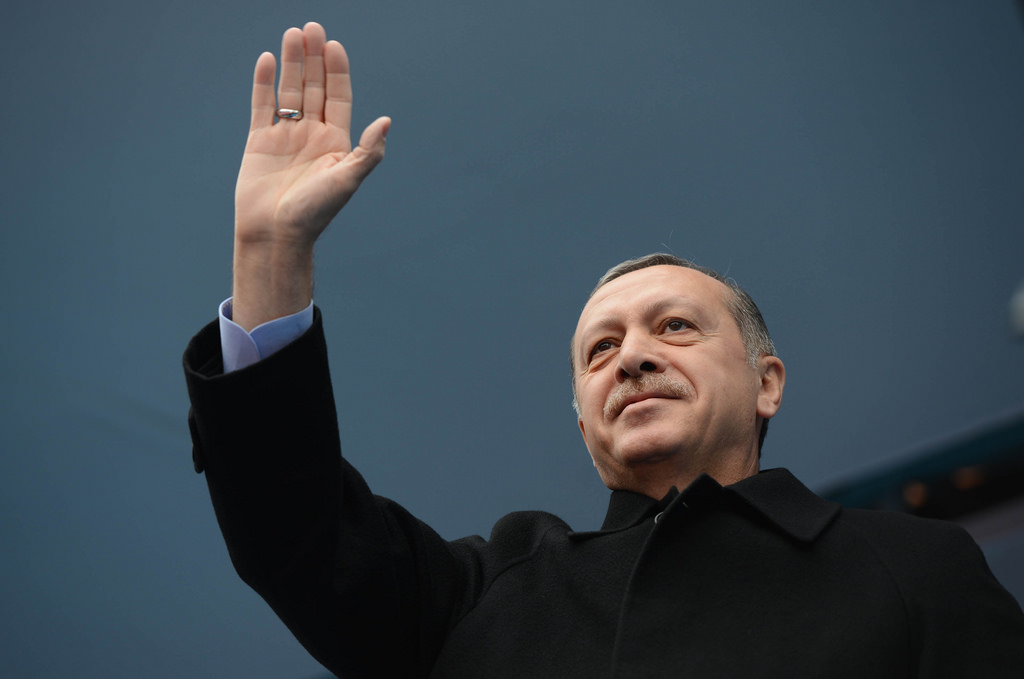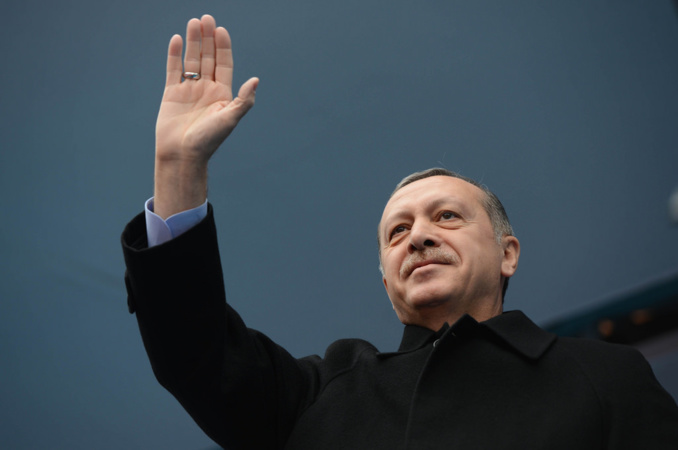The preliminary results of the presidential and parliamentary elections in Turkey were announced last night. They became a disappointment for the Turkish opposition, which hoped to shake the positions of the unsinkable Turkish leader Recep Tayyip Erdogan and his Justice and Development Party (AKP).
According to the Supreme Electoral Council, about 55% of voters voted for incumbent President. At that, his main rival, Muharrem İnce, representing the main opposition force, the Republican People's Party (SHP), scored twice less, 27% of the vote.
Five candidates competed for the current president position in the presidential elections,. The closest opponent, Muharrem İnce, was nominated from the oldest People's Republican Party (SHP) in the country. "Let's make Turkey elegant," read a poster at one of his pre-election rallies in Ankara. This is a word-play as the candidate’s name, İnce, from translates Turkish as "elegant", "graceful." Supporters of the candidate believe that too rough, "inelegant politics" of Recep Tayyip Erdogan is to blame for Turkey's problems.
The second strongest opponent of President Erdogan was the head of the new nationalist "Good Party" Meral Akşener. In her speeches, she promised to restore the Turkish economy and return the Syrians to their homeland.
Representatives of Western institutions declared that holding elections during the state of emergency is unacceptable. Despite their criticism, Kemal Kılıçdaroğlu, the head of the opposition SHP, assured journalists that there were "no serious problems" during the voting.
President Erdogan won the race and managed to avoid the second round. Yet, his AKP party performed worse than expected, receiving about 43%. This means that to form a ruling coalition, AKP will have to ally with the Nationalist Movement Party (MHP). The total number of votes of the AKP and MHP united was 55.5%, and this allowed them to form a majority.
Pro-Kurdish Democratic People's Party (DHP) overcame the ten percent barrier, and it was another unpleasant surprise for the Turkish leader. And apart from SHP, demanding a return to the parliamentary republic, another political force debuted on the political field. This is the "Good Party", which opposes the course of President Erdogan, accusing him of "authoritarianism". Having appeared just last year, it quickly gained popularity (its rating was 10-13%on the eve of the election). The Conservative Happiness Party also joined the "Good Party" and SHP. Having received a total of 33.7% of the votes, they merged into the "National Bloc".
A number of Turkish experts believes that despite the growing economic and political problems, President Erdogan and his associates managed to convince voters that the current course has no alternative. To mobilize voters, the authorities resorted to nationalist slogans and campaigns to expose foreign enemies.
The final Saturday meeting of nationalists in Ankara illustrated the role that the "external threat" thesis played in these elections. People who came insisted that it was not President Erdogan who was to blame for Turkey's current problems, but "external forces" who wish their country ill.
source: theguardian.com
According to the Supreme Electoral Council, about 55% of voters voted for incumbent President. At that, his main rival, Muharrem İnce, representing the main opposition force, the Republican People's Party (SHP), scored twice less, 27% of the vote.
Five candidates competed for the current president position in the presidential elections,. The closest opponent, Muharrem İnce, was nominated from the oldest People's Republican Party (SHP) in the country. "Let's make Turkey elegant," read a poster at one of his pre-election rallies in Ankara. This is a word-play as the candidate’s name, İnce, from translates Turkish as "elegant", "graceful." Supporters of the candidate believe that too rough, "inelegant politics" of Recep Tayyip Erdogan is to blame for Turkey's problems.
The second strongest opponent of President Erdogan was the head of the new nationalist "Good Party" Meral Akşener. In her speeches, she promised to restore the Turkish economy and return the Syrians to their homeland.
Representatives of Western institutions declared that holding elections during the state of emergency is unacceptable. Despite their criticism, Kemal Kılıçdaroğlu, the head of the opposition SHP, assured journalists that there were "no serious problems" during the voting.
President Erdogan won the race and managed to avoid the second round. Yet, his AKP party performed worse than expected, receiving about 43%. This means that to form a ruling coalition, AKP will have to ally with the Nationalist Movement Party (MHP). The total number of votes of the AKP and MHP united was 55.5%, and this allowed them to form a majority.
Pro-Kurdish Democratic People's Party (DHP) overcame the ten percent barrier, and it was another unpleasant surprise for the Turkish leader. And apart from SHP, demanding a return to the parliamentary republic, another political force debuted on the political field. This is the "Good Party", which opposes the course of President Erdogan, accusing him of "authoritarianism". Having appeared just last year, it quickly gained popularity (its rating was 10-13%on the eve of the election). The Conservative Happiness Party also joined the "Good Party" and SHP. Having received a total of 33.7% of the votes, they merged into the "National Bloc".
A number of Turkish experts believes that despite the growing economic and political problems, President Erdogan and his associates managed to convince voters that the current course has no alternative. To mobilize voters, the authorities resorted to nationalist slogans and campaigns to expose foreign enemies.
The final Saturday meeting of nationalists in Ankara illustrated the role that the "external threat" thesis played in these elections. People who came insisted that it was not President Erdogan who was to blame for Turkey's current problems, but "external forces" who wish their country ill.
source: theguardian.com



















